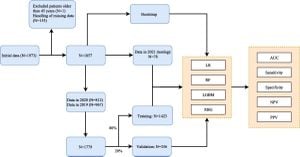The Council of Mallorca is intensifying its efforts to crack down on illegal holiday rentals, as the authorities recently took definitive action against multiple unlicensed properties.
Ten illegal tourist flats located within the same building on Calle Gaspar Bennazar, Palma, have been ordered to cease operations. Each of these properties faced hefty penalties of €80,000, culminating in total fines amounting to €800,000 for engaging in rental activities without legal authorization. This crackdown is part of broader enforcement efforts, which have become increasingly stringent as Mallorca grapples with its rising number of illegal rentals.
The crackdown was prompted by protests from local residents unhappy about the proliferation of unlicensed tourist accommodations. These protests occurred last July, leading to intervention by the Consell de Mallorca's tourism department. Following these incidents, inspectors are set to monitor compliance with the closure orders. If property owners do not adhere to the regulations, the situation could escalate, with the Council preparing to involve the Prosecutor’s Office.
This major enforcement action is part of the mallorcan authorities' broader initiative to manage the growing issue of illegal tourist flats. Previously, in August, twelve flats within the same apartment block also received similar penalties, indicative of systemic issues within the holiday rental sector. This has been compounded by additional cases, such as seven more flats facing €80,000 fines imposed last November.
Notably, as of last autumn, only 621 properties in Palma had received official licenses to cater to tourists, highlighting the overwhelming majority of unregulated listings. Reports suggest approximately 70% of holiday rentals found via platforms like Airbnb are operating illegally, making this crack down imperative for maintaining fair business practices.
Jose Marcial Rodriguez Diaz, Mallorca's head of tourism, addressed the serious concerns surrounding these illegal rentals, stating, "Illegal letting is not just unfair competition, but a terrible problem for coexistence, which is something we want to stop." His remarks underline the dual threat posed by unlicensed rentals: one of economic fairness and another of social harmony within communities.
The range of penalties set by Mallorca's authorities for illegal holiday rentals varies significantly, starting at €40,001 and peaking at €400,000. This tiered penalty structure reflects the seriousness with which the local government is treating the situation and is intended as both a deterrent for would-be offenders and a means of encouraging compliance among current operators.
The Council's recent measures send a clear message to property owners exploiting the tourist rental market without the requisite licenses. The local government aims to level the playing field for those operators who comply with regulations, thereby fostering a more sustainable tourism environment.
While the holiday rental sector can provide substantial economic benefits to regions like Mallorca, the lack of regulation has raised issues leading to public backlash from residents feeling the impacts of tourism on their neighborhoods. The influx of short-term rentals has been tied to rising rental prices and housing shortages, making regulatory enforcement not just necessary for business but urgent for community health.
Continued scrutiny from the local government will likely happen as they navigate the complex dynamics between tourism and resident needs. The latest developments indicate but the beginning of what may be a long-term initiative to curb illegal tourist flats and their disruptive effects.
Going forward, locals and tourists alike will be watching how effectively the authorities can enforce these regulations and what ramifications might arise for those who fail to comply.



